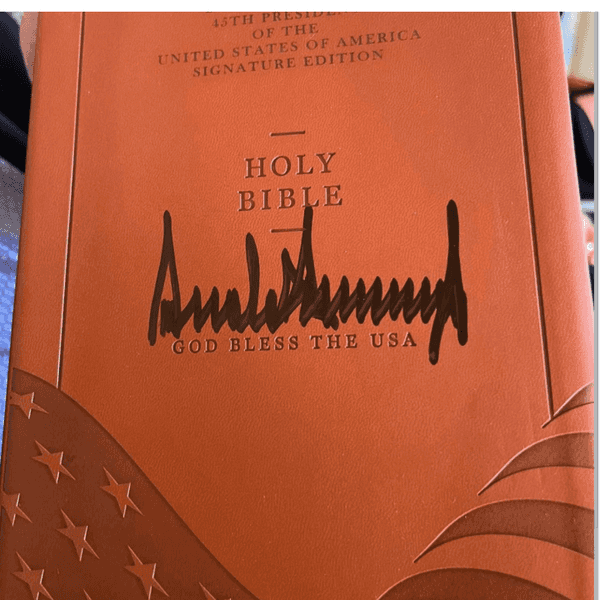
The U.S. has forsworn secret prisons. But we have reams of secret laws for our secret intelligence agencies, interpreted by a secret court that hands down secret rulings.
The time is ripe to declassify the rulings, enough to reassure us that the rule of law remains in the realm of government eavesdropping. Eight senators — Republicans and Democrats — introduced a bill this week to do just that. The Justice Department has broken promises since 2010 to publish the rulings, and the blame lies with Attorney General Eric Holder.
Publishing the rulings could explain the National Security Agency’s access to the email and telephone data of American citizens and corporations. It might calm fears about government surveillance. Or it might shock the conscience. Either way, we should read them to understand what the government is doing in the name of national security.
The alternative is more illegal leaks and official lies.
The rulings in question come from the Foreign Intelligence Surveillance Court. That panel of 11 federal judges, selected by the chief justice of the U.S., oversees warrants for electronic eavesdropping, bugging, wiretapping and, we now know, the collaboration of social-media and telecommunications giants who share metadata with the NSA.
We know that because Edward Snowden, a former contract worker for the NSA and the Central Intelligence Agency, leaked a top-secret April 25 ruling by the secret court. The ruling renewed the NSA’s authority to collect all the domestic-calling records of a business subsidiary of Verizon Communications Inc. under Section 215 of the PATRIOT Act.
Congress created the secret court in 1978 to curb the abuses of the NSA, the CIA and the Federal Bureau of Investigation, which had conducted wiretaps, bugging and break-ins without judicial warrants under presidents Lyndon Johnson and Richard Nixon. That conduct violated the Fourth Amendment’s ban on unwarranted and unreasonable searches and seizures.
A secret warrant is justified for surveillance against suspected spies and terrorists. The FBI and the NSA sought more than 18,000 such warrants in the years before the Sept. 11 attacks; the court usually said yes. It rejected or demanded revisions on those applications four or five times.
Then, George W. Bush’s administration played havoc with the law and the Constitution.
President Bush believed that the emergency created by the Sept. 11 attacks allowed the government to spy on anyone without a warrant. He was “free from the constraints of the Fourth Amendment” when it came to unleashing the NSA. The agency is a military-intelligence service — and “the Fourth Amendment would not apply to military operations the president ordered within the United States to deter and prevent acts of terrorism.”
Those are the words of a Justice Department opinion issued — in secret — after the attacks.
So the NSA went ahead without warrants — in secret — for 30 months until FBI Director Robert Mueller and his soon-to-be- appointed successor, James Comey, then the acting attorney general, confronted Bush over his unconstitutional conduct. One intelligence-court judge, James Robertson, later resigned in protest over the conduct of the NSA and the White House.
“What we have found in the history of our country is that you can’t trust the executive,” Royce Lamberth, the presiding judge of the Foreign Intelligence Surveillance Court from 1995 to 2002, told the American Library Association in 2007.
“You can fight the war and lose everything if you have no civil liberties left when you get through fighting,” Lamberth said. “The executive has to fight and win the war at all costs. But judges understand the war has to be fought, but it can’t be at all costs.”
By 2008, Congress had expanded the powers of the NSA under the PATRIOT Act and the Foreign Intelligence Surveillance Act — in secret. The five-year statute had to be renewed this spring. That brings us to our present impasse.
Congress says the provisions of the expanded surveillance laws are too secret to withstand public debate. At least eight senators, including Ron Wyden, an Oregon Democrat and long-standing Intelligence Committee member, clearly believe something is rotten in the state of surveillance. But they can’t say what. It’s too secret.
Wyden asked the director of national intelligence, James Clapper, at a hearing two months ago: “Does the NSA collect any type of data at all on millions or hundreds of millions of Americans?”
“No, sir,” Clapper said. “Not wittingly.” That answer looks false.
You have to read between the lines of the congressional record to see where the problems in the laws may lie. My guess is that while the NSA conducts surveillance on foreigners overseas — that’s totally legal — it is in the process gathering intelligence on people in the U.S. without a warrant. That might be totally illegal. Let us see what the Foreign Intelligence Surveillance Court has to say about it.
Congress continues to enact laws in secret. President Barack Obama’s espionage chiefs are compelled to contort the truth in public. Federal courts seem incapable of handling secret intelligence issues in open trials. They have rejected lawsuits by the American Civil Liberties Union against Section 215 of the PATRIOT Act, saying the plaintiffs couldn’t prove they were spied on, and so had no standing to sue. Guess which venerable group is a customer of Verizon Business Network Services?
So we need to know what the secret judges think. The U.S. has the unique challenge of trying to run secret intelligence in an open democracy. It has to do so under the law.
(Tim Weiner, a former national security correspondent for The New York Times, is the author, most recently, of Enemies: A History of the FBI.)
Photo: Scott* via Flickr.com








